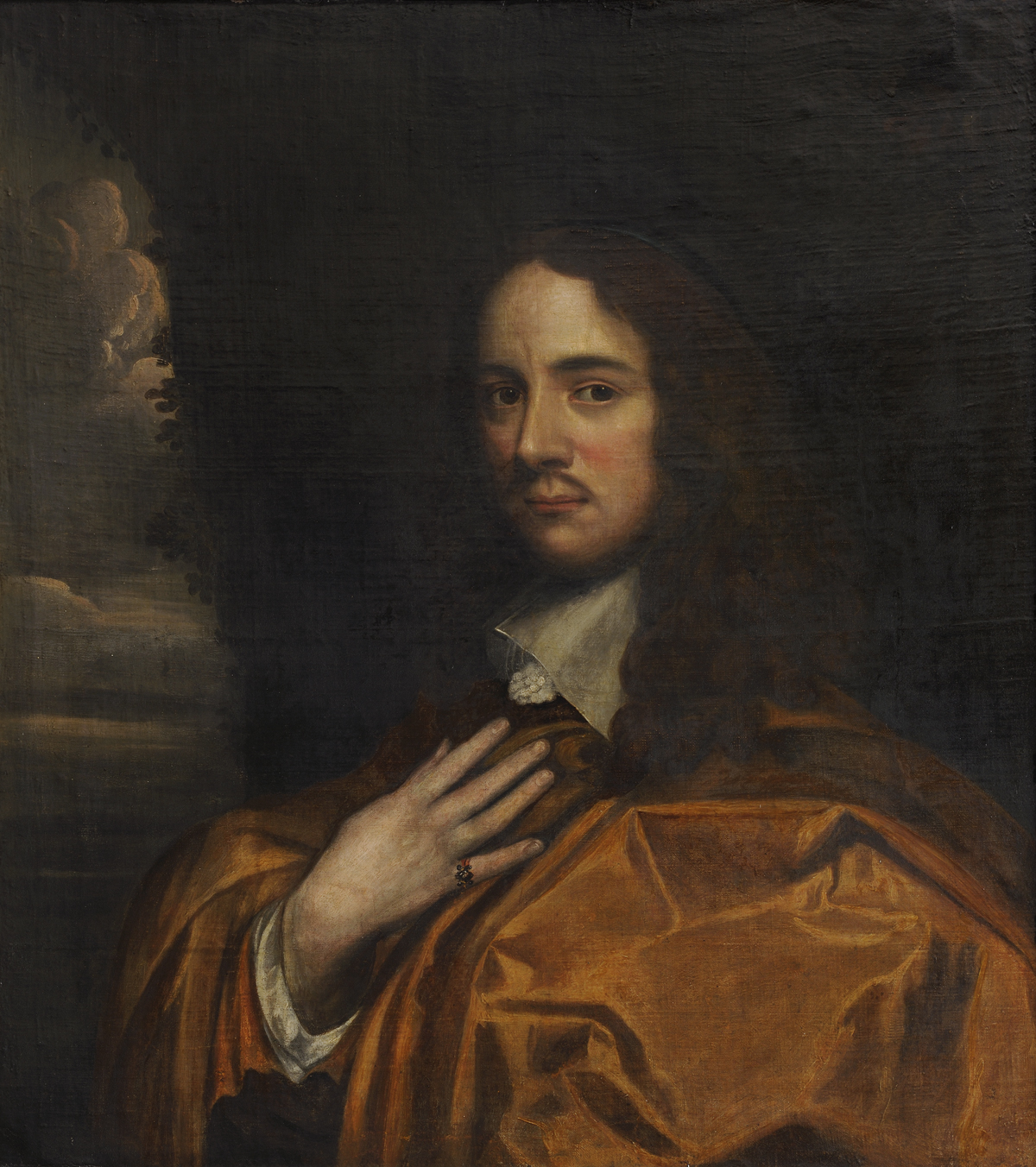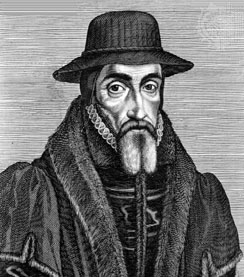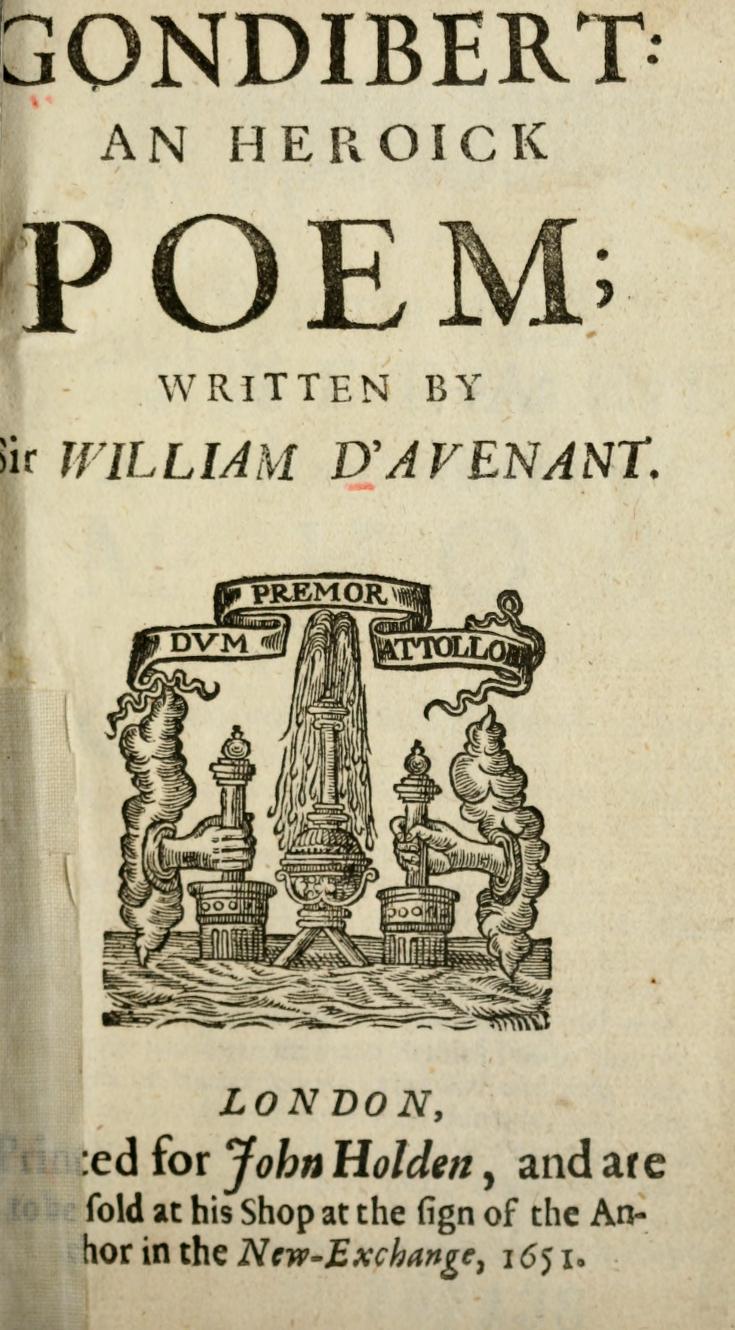|
Upon Appleton House
"Upon Appleton House" is a poem written by Andrew Marvell for Thomas Fairfax, 3rd Lord Fairfax of Cameron. It was written in 1651, when Marvell was working as a tutor for Fairfax's daughter, Mary. An example of a country house poem, "Upon Appleton House" describes Fairfax's Nunappleton estate while also reflecting upon the political and religious concerns of the time. Background Nun Appleton Priory was a Cistercian religious house, until the Dissolution of the Monasteries. At that point, or shortly afterwards, it was acquired by the Fairfax family. One of the themes of the poem is a Protestant-slanted account of the circumstances under which Isabel Thwaites left the nunnery. She married William Fairfax of Steeton, in 1518, two decades before the Dissolution. Their son Sir Thomas Fairfax of Denton was a Member of Parliament; and his son was Thomas Fairfax, 1st Lord Fairfax of Cameron. The story of Isabel, released from wardship in the priory by legal order and William Fairfax's inte ... [...More Info...] [...Related Items...] OR: [Wikipedia] [Google] [Baidu] |
Andrew Marvell
Andrew Marvell (; 31 March 1621 – 16 August 1678) was an English metaphysical poet, satirist and politician who sat in the House of Commons at various times between 1659 and 1678. During the Commonwealth period he was a colleague and friend of John Milton. His poems range from the love-song "To His Coy Mistress", to evocations of an aristocratic country house and garden in " Upon Appleton House" and " The Garden", the political address "An Horatian Ode upon Cromwell's Return from Ireland", and the later personal and political satires "Flecknoe" and "The Character of Holland". Early life Marvell was born in Winestead-in-Holderness, East Riding of Yorkshire, near the city of Kingston upon Hull. He was the son of a Church of England clergyman also named Andrew Marvell (often termed Marvell Senior). The family moved to Hull when his father was appointed Lecturer at Holy Trinity Church , and Marvell was educated at Hull Grammar School. Aged 13, Marvell attended Trinity C ... [...More Info...] [...Related Items...] OR: [Wikipedia] [Google] [Baidu] |
Iambic Tetrameter
Iambic tetrameter is a poetic meter in ancient Greek and Latin poetry; as the name of ''a rhythm'', iambic tetrameter consists of four metra, each metron being of the form , x – u – , , consisting of a spondee and an iamb, or two iambs. There usually is a break in the centre of the line, thus the whole line is: , x – u – , x – u – , , x – u – , , x – u – , ("x" is a syllable that can be long or short, "–" is a long syllable, and "u" is a short one.) In modern English poetry, it refers to a line consisting of four iambic feet. The word "tetrameter" simply means that there are four feet in the line; ''iambic tetrameter'' is a line comprising four iambs, defined by accent. The scheme is thus: x / x / x / x / Some poetic forms rely upon the iambic tetrameter, for example triolet, Onegin stanza, In Memoriam stanza, long measure (or long meter) ballad stanza. Quantitative verse In Medieval Latin The term iambic tetrameter originally appl ... [...More Info...] [...Related Items...] OR: [Wikipedia] [Google] [Baidu] |
Poetry By Andrew Marvell
Poetry (derived from the Greek ''poiesis'', "making"), also called verse, is a form of literature that uses aesthetic and often rhythmic qualities of language − such as phonaesthetics, sound symbolism, and metre − to evoke meanings in addition to, or in place of, a prosaic ostensible meaning. A poem is a literary composition, written by a poet, using this principle. Poetry has a long and varied history, evolving differentially across the globe. It dates back at least to prehistoric times with hunting poetry in Africa and to panegyric and elegiac court poetry of the empires of the Nile, Niger, and Volta River valleys. Some of the earliest written poetry in Africa occurs among the Pyramid Texts written during the 25th century BCE. The earliest surviving Western Asian epic poetry, the ''Epic of Gilgamesh'', was written in Sumerian. Early poems in the Eurasian continent evolved from folk songs such as the Chinese ''Shijing'', as well as religious hymns (the Sanskrit '' ... [...More Info...] [...Related Items...] OR: [Wikipedia] [Google] [Baidu] |
1681 Poems
Events January–March * January 1 – Prince Muhammad Akbar (Mughal prince), Muhammad Akbar, son of the Mughal Empire, Mughal Emperor Aurangzeb, initiates a civil war in India. With the support of troops from the Rajput states, Akbar declares himself the new Mughal Emperor and prepares to fight his father, but is ultimately defeated. * January 3 – The Treaty of Bakhchisarai is signed, between the Ottoman Empire, Ottoman vassal Crimean Khanate and the Russian Empire. * January 18 – The "Exclusion Bill Parliament", summoned by King Charles II of England in October, is dissolved after three months, with directions that new elections be held, and that a new parliament be convened in March in Oxford. * February 2 – In India, the Mughal Empire city of Burhanpur (now in the Indian state of Madhya Pradesh) is Sacking of Burhanpur (1681), sacked and looted by troops of the Maratha Empire on orders of the Maratha emperor, the Chhatrapati Sambhaji. Gener ... [...More Info...] [...Related Items...] OR: [Wikipedia] [Google] [Baidu] |
1651 Poems
Events January–March * January 1 – Charles II of England, Charles II is crowned King of Scots at Scone, Scotland, Scone (Scottish coronation of Charles II, his first crowning). * January 24 – Parliament of Boroa in Chile: Spanish and Mapuche authorities meet at Boroa, renewing the fragile peace established at the parliaments of Quillín, in Parliament of Quillín (1641), 1641 and 1647. * February 22 – St. Peter's Flood: A first storm tide in the North Sea strikes the coast of Germany, drowning thousands. The island of Juist is split in half, and the western half of Buise is probably washed away. * March 4 – St. Peter's Flood: Another storm tide in the North Sea strikes the Netherlands, flooding Amsterdam. * March 6 – The town of Kajaani was founded by Count Per Brahe the Younger. * March 15 – Prince Aisin Gioro Fulin attains the age of 13 and becomes the Shunzhi Emperor of China, which had been governed by a regency since the de ... [...More Info...] [...Related Items...] OR: [Wikipedia] [Google] [Baidu] |
John Foxe's Apocalyptic Thought
The English Protestant cleric John Foxe of the 16th century, known primarily if somewhat misleadingly as a martyrologist on the basis of his major work '' Actes and Monuments'', wrote also on the interpretation of the Apocalypse, both at the beginning of his writing career in the 1550s, and right at the end of it, with his ''Eicasmi'' of 1587, the year of his death. Background John Bale writing in the 1540s had identified the Protestant Church of England as an actor in the historical struggle with the "false church" of Catholicism; and backed up his views with interpretation of the ''Book of Revelation''. The "English apocalyptic" was exceptional in the Protestant territories, with the concept of England as an "elect nation". Orthodoxy Foxe's views became quite orthodox in the Church of England for a generation, and more: a war against Antichrist was being waged by the English people, but led by the ''Christian Emperor'' (echoing Constantine I) who was identified with Elizabeth I ... [...More Info...] [...Related Items...] OR: [Wikipedia] [Google] [Baidu] |
Mnemonic
A mnemonic ( ) device, or memory device, is any learning technique that aids information retention or retrieval (remembering) in the human memory for better understanding. Mnemonics make use of elaborative encoding, retrieval cues, and imagery as specific tools to encode information in a way that allows for efficient storage and retrieval. Mnemonics aid original information in becoming associated with something more accessible or meaningful—which, in turn, provides better retention of the information. Commonly encountered mnemonics are often used for lists and in auditory form, such as short poems, acronyms, initialisms, or memorable phrases, but mnemonics can also be used for other types of information and in visual or kinesthetic forms. Their use is based on the observation that the human mind more easily remembers spatial, personal, surprising, physical, sexual, humorous, or otherwise "relatable" information, rather than more abstract or impersonal forms of informa ... [...More Info...] [...Related Items...] OR: [Wikipedia] [Google] [Baidu] |
Antoine Girard De Saint-Amant
Antoine Girard, sieur de Saint-Amant (September 30, 1594December 29, 1661) was a French poet. Saint-Amant was born near Rouen. His father was a merchant who had, according to his son's account, been a sailor and had commanded for 22 years "''une escadre de la reine Elizabeth''" – a vague statement that lacks confirmation. The son obtained a patent of nobility, and attached himself to different great noblemen – the duc de Retz and the comte d'Harcourt among others. He saw military service and sojourned at different times in Italy, in England – a sojourn which provoked from him a violent poetical attack on the country, ''Albion'' (1643) – in Poland, where he held a court appointment for two years, and elsewhere. Saint-Amant's later years were spent in France; and he died at Paris. Saint-Amant has left a considerable body of poetry. His ''Albion'' and ''Rome ridicule'' set the fashion of the burlesque poem. In his later years he devoted himself to serious subjects and prod ... [...More Info...] [...Related Items...] OR: [Wikipedia] [Google] [Baidu] |
Constantijn Huyghens
Sir Constantijn Huygens, Lord of Zuilichem ( , , ; 4 September 159628 March 1687), was a Dutch Golden Age poet and composer. He was also secretary to two Princes of Orange: Frederick Henry and William II, and the father of the scientist Christiaan Huygens. Biography Constantijn Huygens was born in The Hague, the second son of Christiaan Huygens (senior), secretary of the Council of State, and Susanna Hoefnagel, niece of the Antwerp painter Joris Hoefnagel. Education Constantijn was a gifted child in his youth. His brother Maurits and he were educated partly by their father and partly by carefully instructed governors. When he was five years old, Constantijn and his brother received their first musical education. Music education They started with singing lessons, and they learned their notes using gold-coloured buttons on their jackets. It is striking that Christiaan senior imparted the "modern" system of 7 note names to the boys, instead of the traditional, but much more ... [...More Info...] [...Related Items...] OR: [Wikipedia] [Google] [Baidu] |
Mildmay Fane, 2nd Earl Of Westmorland
Mildmay Fane, 2nd Earl of Westmorland (24 January 1602 – 12 February 1666), styled Lord le Despenser between 1624 and 1628, was an English nobleman, politician and writer. Life One of seven sons of Francis Fane by his wife Mary Mildmay, granddaughter of Sir Walter Mildmay, Mildmay Fane was born in Kent and educated at Emmanuel College, Cambridge (matriculated 1618). He became MP for Peterborough in 1620 and for Kent in 1625. He succeeded his father as Earl of Westmorland and Lord le Despenser on 23 March 1629. A friend of Robert Herrick, he supported the Royalist party at the outbreak of the English Civil War (King Charles I had stood as godfather to Fane's eldest son in 1635). Following a brief period of imprisonment by Parliament, however, he retired to his estate at Apethorpe Palace in Northamptonshire. Writing One hundred and thirty-seven poems by Fane appeared in his self-published collection ''Otia Sacra'' in 1648—the first time a peer of England published his o ... [...More Info...] [...Related Items...] OR: [Wikipedia] [Google] [Baidu] |
William Davenant
Sir William Davenant (baptised 3 March 1606 – 7 April 1668), also spelled D'Avenant, was an English poet and playwright. Along with Thomas Killigrew, Davenant was one of the rare figures in English Renaissance theatre whose career spanned both the Caroline and Restoration eras and who was active both before and after the English Civil War and during the Interregnum. Biography Early life Davenant is believed to have been born in late February, 1606 in Oxford, the son of Jane Shepherd Davenant and John Davenant, proprietor of the Crown Tavern (or Crown Inn) and Mayor of Oxford. He was baptised on 3 March, his godfather sometimes being said to have been William Shakespeare, who, according to John Aubrey, had stayed frequently at the Crown during his travels between London and Stratford-upon-Avon.Edmond, M., ''Yeomen, Citizens, Gentlemen, and Players: The Burbages and Their Connections'', R. B. Parker (ed), ''Elizabethan Theater: Essays in Honor of S. Schoenbaum'', University o ... [...More Info...] [...Related Items...] OR: [Wikipedia] [Google] [Baidu] |
Gondibert
''Gondibert'' is an epic poem by William Davenant. In it he attempts to combine the five-act structure of English Renaissance drama with the Homeric and Virgilian epic literary tradition. Davenant also sought to incorporate modern philosophical theories about government and passion, based primarily in the work of Thomas Hobbes, to whom Davenant sent drafts of the poem for review. A lengthy philosophical preface takes the form of a letter to Hobbes, and is printed in the first edition with Hobbes' own reply and comments. Though Davenant asserted that the completed work would be in five sections or "books", only the first two books and part of the third book were completed. Publication history The philosophical Preface with Hobbes's reply to Davenant appeared, along with a few stanzas of the poem, in an edition published during Davenant's exile in Paris in 1650. There were two editions of the partially completed text in London in 1651. A 1652 edition contains the first two books and ... [...More Info...] [...Related Items...] OR: [Wikipedia] [Google] [Baidu] |

.jpg)





